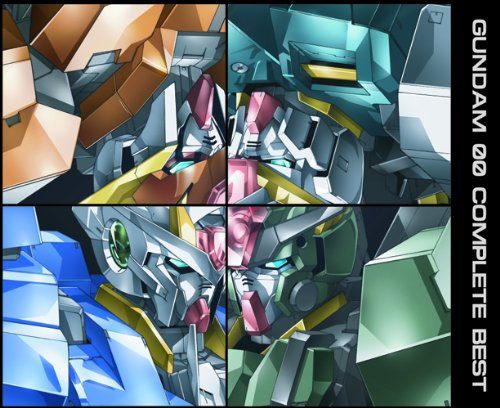
Compared to a lot of country’s animated programs, Japan has a unique style of soundtracks for anime. Thanks to modern day technology whether it would be YouTube or AniUta, an excellently organized app dedicated to streaming over 9,000 anisongs, fans from around the world can enjoy them anytime they wish! Though a lot of American based cartoons have catchy show themes such as the original GI Joe, Teenage Mutant Ninja Turtles, and The Smurfs, other than that, they have little to nothing to offer beyond that.
As opposed to making a catchy theme song that repeats the name of the show, anime songs provide something more meaningful with the lyrics and impact. In many instances, anime tends to use domestic popular artists to perform their songs, and it helps bring attention to the anime and the performer(s). Thanks to their inclusion, many fans around the world can learn about great Japanese bands like L’arc~en~ciel and AKB48, or singers such as Yuna Ito or Tomohisa Yamashita.
What Makes Anisongs So Appealing?
Very little do numerous non-Japanese animated programs produce and sell their own soundtracks, but what makes anisongs different? As we shared before, a great number of them feature popular Japanese artists. One notable example is Red Swan, the opening theme to season 3 of Attack on Titan, which collaborates Yoshiki of X-Japan and HYDE from L’arc~en~ciel. To put that in a Western perspective, it’s as if Eddie Van Halen, Billy Gibbons and Jimmy Hendrix got together and jammed. While Red Swan takes a left turn from the intensity of the previous opening themes, many manga fans praise it for capturing and foreshadowing the emotional nature of the Uprising Arc. It is masterfully composed with powerful lyrics and amazing instrumentals. Not only was it a big deal in anime, but to the world of Japanese music as a whole.
Anisongs just go the extra mile in bringing the viewers into their world and makes the series more impacting to its audience. One notable example is Make My Story from My Hero Academia, it resonates with the anime’s themes of overcoming one’s adversities and taking control of one’s destiny. It perfectly reflects Izuku’s journey and the lyrics are relatable to audiences around the world.
Convention Idol Contests and Concerts
As anime in its Japanese form finds an international audience, as will anisongs. In the last decade, big name cons such as Anime Expo have even done karaoke contests where fans sing anime songs in Japanese! Not only does the winner get bragging rights, they get a recording contract! Stephanie Yanez, the first ever winner of Anime Expo’s idol contest, has gone on to collaborate on Hatsune Miku tracks! Considering that cons now do such contests with actual celebrity guests, it is one indication to show how anisongs have become popular amongst the international fan base.
Not only do cons offer idol contests, they even get bands and singers from Japan to perform. JAM Project, which consists of many legendary anisong artists (most notably Hironobu Kageyama), have done concerts in US based conventions as have L’arc~en~ciel, Momoiro Clover Z, and Porno Graffiti. The fact that these bands who have contributed to anime come all the way out for international anime fans is a good indication that anisongs are growing in popularity.
International Televised Idol Contest
Not only do fans sing songs for conventions, many anime fans in a small handful of countries have attempted to go on a nationally televised singing contest (akin to American Idol or The Voice) so they can share their passion for anime and its music. For the controversial American Idol show, an anime fan attempted to audition (by singing a non-anime song) but in her promo video, she shared she wanted to be a singer in Japan and even demonstrated a bit of the Lucky Star dance. In Spain, a Naruto fan auditioned for his nation’s singing show by singing Haruka Kanata in Japanese. In a similar show in France, a Saint Seiya fan auditioned by singing Pegasus Fantasy in Japanese. Due to those contestants not singing in their native languages, the judges felt by listening to a song they can’t understand, there’s no reason to bother with them. However, a Thai fan of Saint Seiya managed to get a better reception in his nation’s televised performance thanks to his superb talent.
Then there are instances of Peruvian fans singing anime theme songs in their native Spanish. In one Peruvian televised singing show, an anime fan performed the Spanish versions to Pegasus Fantasy and Cha-La Head Cha-La. Considering the history of anime in those nations have a different history compared to that of some other nations, it’s more natural for them to be receptive to such contestants and it helps to sing in the local language.
Final Thoughts
We do encourage you to watch some of those auditions on YouTube and you may get a kick out of them. Regardless of their singing talent, we shouldn’t fault anyone for trying to share their love of a certain anime on a national platform, especially when they took their rejections professionally and with class. Thanks to these contestants, it could potentially help make anisongs more popular and expand the fan base (or maybe not).
We give credit to the contestants who sing in Japanese regardless of their comprehension of the language. We understand that music should be universal, but by sharing your passion in a language that the local audience can understand, it’ll help ease them into the world of anisongs. We’re obviously not at the point that we can consider anisongs to be mainstream, but considering how the original artists are now going out of their way to perform at cons in different nations, it is certainly a giant leap . If more fans around the world continue to share that passion on their national singing shows, with the right tools, it could help continue to expand.

